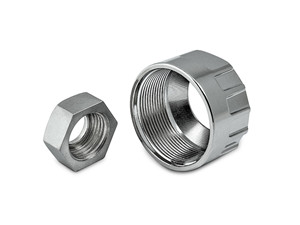Zinc is one of the most versatile die cast metals. It provides higher precision with lower tooling costs when compared to other die cast metals like aluminum or magnesium. Zinc Die Casting also offers a broad range of excellent physical and mechanical properties, finishing characteristics, and is the easiest to cast. Die casting is a versatile, efficient and economical process for producing engineered metal parts.
Zinc Die Casting,Casting Zinc Alloy,Die Casting Zinc,Die-Cast Zinc Alloy,Zinc Alloy Die Casting NINGBO CITY YINZHOU RUICAN MACHINERY CO.,LTD , https://www.ruican-machining.com
High-end machine tools become the main competition point Since the second half of 2011, China's sales of general-purpose small and medium-sized machine tools have turned sharply. Market demand has rapidly shifted to sophisticated high-end machine tools and high-combination high-end machine tools. Efficiency, accuracy, and reliability are the main competition points.
In 2011, the sales of metal cutting machines nationwide was about 26 billion U.S. dollars, a year-on-year increase of 23.8%. The sales of domestic machine tools reached US$15.5 billion, an increase of only 15% year-on-year, while the sales of imported machine tools reached US$10.5 billion, a year-on-year increase of 40%.
According to the survey, domestic machine tool orders in the first quarter of 2012 fell 20% to 30% year-on-year. However, most manufacturers stated that the sales in the first quarter of 2012 were slightly better than in the fourth quarter of 2011, and they believe that there will be a quarter-on-quarter increase in the subsequent quarter of this year. Companies with certain technical backgrounds, high product precision, and better product informationization are more optimistic about the follow-up market demand. Enterprises that have not upgraded their products and their precision are not pessimistic.
The machine tool industry is an obvious cyclical lagging industry. Orders are generally one year behind the start of other strong cycled sub-sectors. It is difficult for the machine tool industry to fully improve before booming real estate and construction machinery industries. However, at present, the machine tool industry has begun to reflect the characteristics of China's economic transformation. Demand has clearly developed in the direction of precision, compound, and high-end.
The high-end production of domestic machine tools faltering from the development of China's machine tool industry, domestic CNC machine tools, especially high-end CNC machine tools, the proportion of low. From January to August 2011, the average CNC production rate of China's machine tool industry was 30.94%, a year-on-year increase of 2.9%. However, compared with the level of CNC machine tools reaching 70% in some developed countries, the gap was significant.
In 2011, China's metal processing machine tool import growth rate reached 40%, far higher than the domestic metal processing machine tool output growth rate of 26%. Imports from Germany and Japan accounted for two-thirds of the total, pushing up the average unit price of metal processing machine tool imports by 33.2% year-on-year. Affected by the high import pressure, the domestic market share of domestic metal processing machine tools was 66.1%, a decrease of 0.8% from the previous year.
On the one hand, this indicates that the domestic market demand structure has been accelerating, and the demand for mid-to-high-end users has increased significantly. On the other hand, domestic high-end products have failed to meet market demands in terms of technological level, industrialization, ability to adapt to the market, and overall services. demand.
In this regard, Wu Bulin, executive vice president of the China Machine Tool Industry Association, said that compared with the international advanced level, China's machine tools still have a large gap in terms of processing accuracy, reliability, efficiency, automation, intelligence and environmental protection. At present, enterprises must grasp market demand opportunities, adjust product structure as soon as possible, and seize high-end product market.
Die casting offers a broader range of shapes and components than any other manufacturing technique. The die casting process requires a steel mold. These reusable steel molds, called dies, can be designed to produce complex shapes with a high degree of accuracy and repeatability. The dies are mounted into a machine that injects molten metal into the dies under high pressure. Once the molten metal has solidified, the die is opened and the casting is ejected from the mold. The die is then closed and the process starts over.

CNC machine tools become the main competition point of high-end machine tools
China is the world's largest consumer and importer of machine tools. In 2011, China's machine tool industry completed industrial output value of more than 700 billion yuan, an increase of 32.5%. However, the scale is not equal to quality, and the domestically-developed numerically-controlled machine tools, which have continued to grow in volume, have encountered a major bottleneck. The shortage of mid-to-high-end market share and the need to improve the overall brand image have caused a lot of attention in the industry.